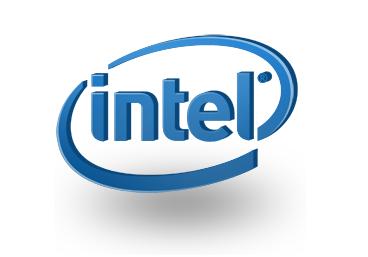The US chip maker said a defect in its manufacturing processs means its next-gen silicon won’t be for sale until 2022. Bye bye Intel Inside, hello ARMed and ready?
The telecoms world is already reeling from dislocations in the supply chain due to widening geo-political fault lines, with President Trump bemoaning the US’ lack of an Huawei, Nokia or Ericsson equivalent. Now Intel, the most advanced chip maker for so long looks to be ceding its crown to Taiwan’s TSMC.
The American silicon giant has had years of delay getting its current 10 nanometre (nm) chips to market and its latest 7nm was supposed to eclipse all that and confirm its lead.
Intel pointed out that although the manufacturing process defect it has discovered puts it a year behind, the new chips themselves will ultimately reduce the production cycle for end products by six months. Also some commentators note that Intel’s most densely packed 10mn designs are as dense as TSMC’s 7mn, but TSMC boasts 5mn manufacturing capabilities.
Begining of the end of an era
James Wang, Analyst, ARK’s Next Generation Internet Strategy, commented, “In our view, this shift marks the beginning of the end of Intel’s 40-year reign in the x86 era”.
He added, “Today, smartphones are the largest computer subsegment in the industry. At $600 billion, the smartphone market is larger than that for PCs and servers combined [at $170 billion]…Smartphones use ARM CPUs while PCs and servers use x86 chips.”
ARM has failed to make headway in the server market so far as the received wisdom has been that the cloud and PCs should run on the same x86 platform.
But now some pundits reckon Intel will be a whole generation behind, having started off an entire one ahead. Until now, the gap between generations of chips has been up to two and half years, which means Intel could at worst suffer a five-year lag if things run to form.
This could trigger a rethink regarding ARM-based servers, and now might be a good time as incidentally, ARM itself is in the midst flux, not in its performance, but because its Japanese owner, Softbank, is looking to sell it, in whole or in part, to reduce the parent company’s alarming levels of debt.
Softbank bought the British chip maker Arm for $32 billion in 2016. There are rumours Nvidia is interesting in acquiring it, but whatever happens, ARM’s value just took a hike.
Taking advantage
Rival chipmakers got an immediate boost. AMD’s chips are made by TSMC, as are Qualcomm and Nvidia’s chip designs: Intel’s shares fell on the news as TSMC and AMD’s rose, creating a shift of some $79 billion in the value of shares of chip companies according to Bloomberg.
The defect announcement also underlines the wisdom of Apple’s decision last month to phase out Intel’s chips and design its own for Mac computers over the next two years, turning to ARM to make them.
The unthinkable
Intel has said it might outsource some manufacturing from 2023, and the obvious outsourcing candidate is TSMC, its fearsome rival.
Outsourcing its manufacture would be unprecedented shift in Intel’s business and operating models: unlike other major chip makers it both designs and makes silicon, while the other do one or the other. As recently as two years ago, Intel’s growth strategy was going to be manufacture others’ chip designs.
Holding steady
Bob Swan, Intel’s CEO, insisted its products could hold poll position despite lost ground in manufacturing because of the changes to the design and with some outside manufacturing.
These may in any case have been necessary steps eventually: as Intel tries to build more business away from its long-time heartland of producing chips for computers and servers, having control of the the design and advanced manufacturing processes in new markets looks as dated as vertically integrated companies.
Intel reported its Q2 revenues were up 20% to $19.7 billion as more PCs were bought to enable eople to work from home.



